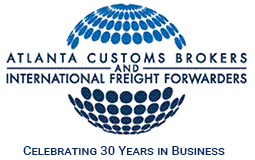Top 7 Supply Chain Challenges for Businesses in 2022
No surprise that inflation is on the rise as the pandemic wears on. Over the last year, inflation increased 6.2%, and much has to do with supply chain challenges. Working through these issues as higher customer demands rise presents more challenges.
At the center of the action, the customs broker must deal with several issues on a global scale. So, for a closer look at what to expect in 2022, keep reading. Here is a list of reasons why the business supply chain will continue to feel the stress.
1. Labor Shortage
Labor has been a significant and prolonged dilemma facing the supply chain and logistics industry. Before the pandemic, supply chain management struggled to replace an aging workforce.
Companies still face challenges keeping enough people employed to match the workload. Pandemic losses affect carriers and logistics firms at the same rate as any other sector.
2. Regional Issues
Trading in various parts of the world affects supply chain trends everywhere. Unrest around the globe takes its toll on supply chain management around the globe.
Many regions are still unstable, and fighting among traditional trade partners has increased. Brexit and the EU are only one example where supply chain challenges are affected, requiring custom brokers to become more flexible to achieve results.
3. Warehouse Space
The pandemic created a scramble among businesses to buy as much real estate as possible. Yet, their move to develop in-house supply chain management systems creates a new problem.
A severe shortage of space can only get corrected with more construction. But the construction industry faces the same product delays as retail.
4. Shipping Delays
As the world of supply chain logistics works its way out of pandemic stoppages, delays still exist. Some parts of the globe are emerging at different rates and creating bottlenecks.
The supply chain can only work faster when all areas work at full capacity. Labor shortages contribute a significant part to the breakdown in fluid movement.
5. Clean Alternatives
The environmental effects of supply chain trends never went away during the pandemic. Businesses continue to wrestle with a balance of emissions control and business growth.
Sustainable solutions will remain a hot topic even with other supply chain challenges. All parties must stay aware of their role as global citizens.
6. Emerging Technology
Labor shortages and the desire to streamline drive the move to automation. Supply chain and logistics firms must reinvest to keep pace.
Artificial intelligence and robotics have found an important place in supply chain trends. But these new technologies need intensive learning for businesses to adjust.
7. Operating Costs
All the factors involved in improving the business supply chain have costs. Yet, as seen in recent history, rising costs are also affected by unforeseen events.
It wasn’t only the pandemic that profoundly affected the business bottom line. Events like the Suez Canal blockage revealed supply chain challenges not seen before.
Customs Broker Challenges
Many of these seven factors work in unison to create issues for every phase of the supply chain. But the customs broker must address supply chain challenges on a global scale.
Although these challenges may take more time to dissipate, an expert on your side has benefits. An experienced customs broker wades through the challenges of today’s supply chain trends.
So if your business needs an ally for your supply chain management,contact us today.
Atlanta Customs Brokers is one of the oldest and most trusted customs brokerage and shipping firms in Atlanta. Established in 1985, our company has been a fixture in and around the Atlanta airport and Savannah port for more than 31 years. We enjoy working with our international partners and enjoy what we do. If you are a first-time importer or exporter or a large corporation, we can handle your needs.

